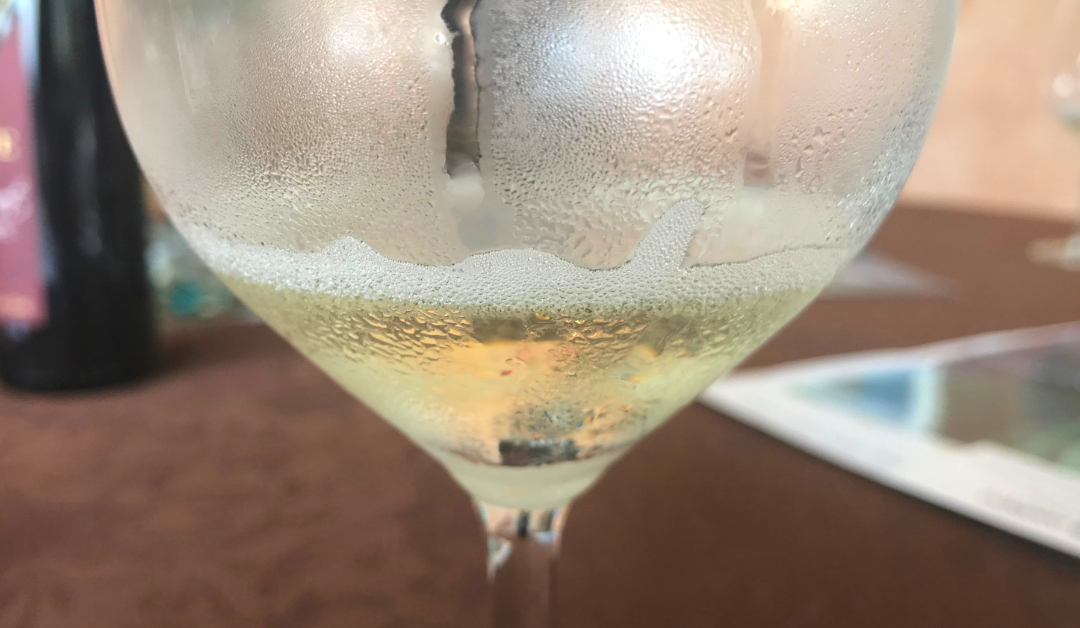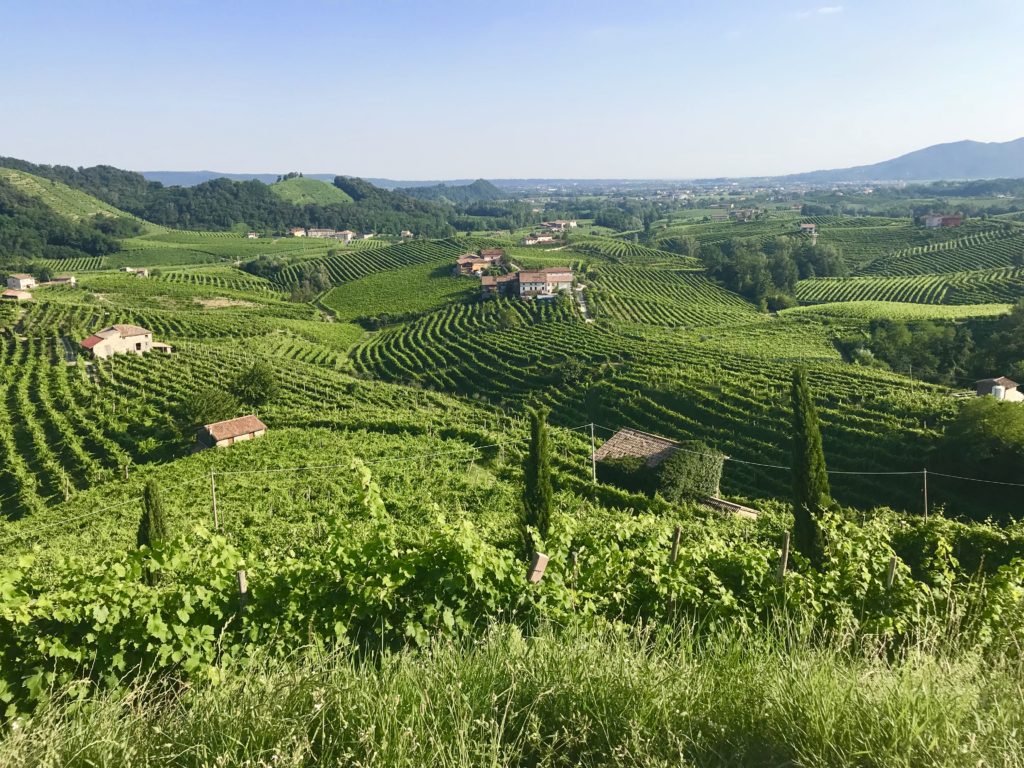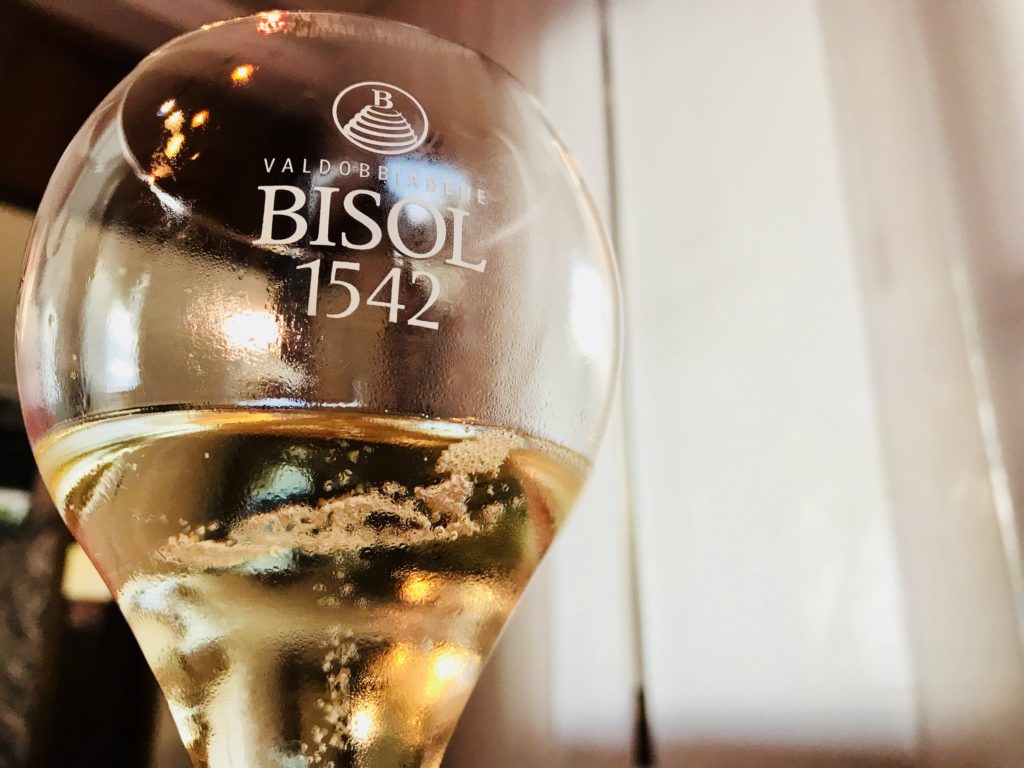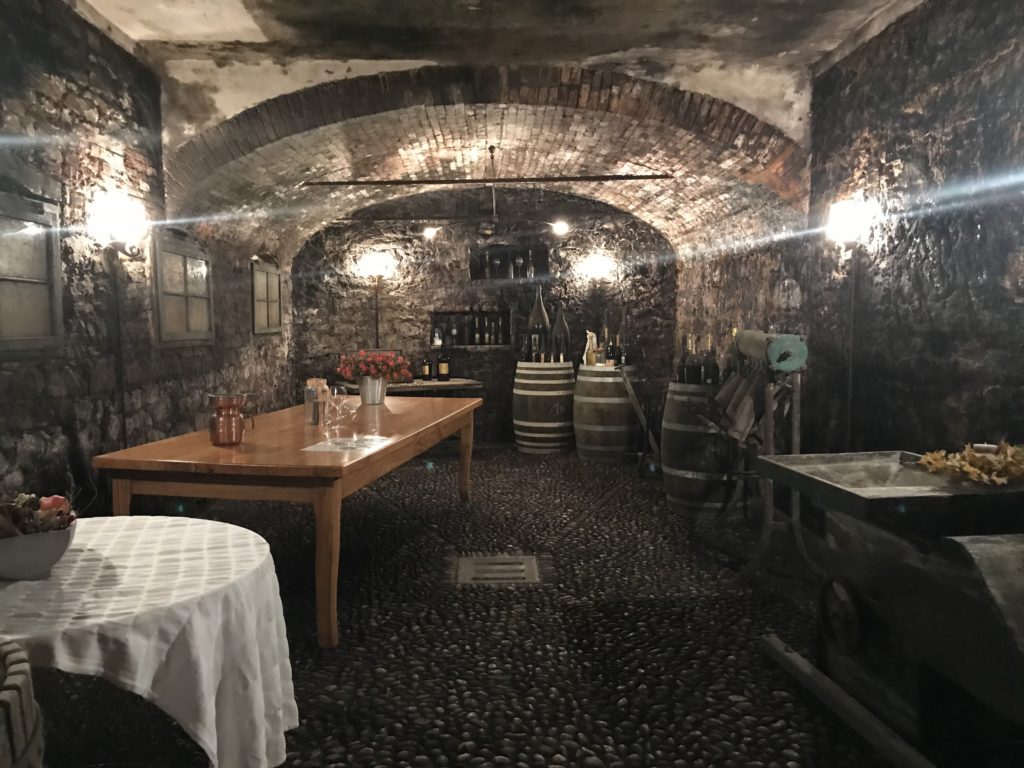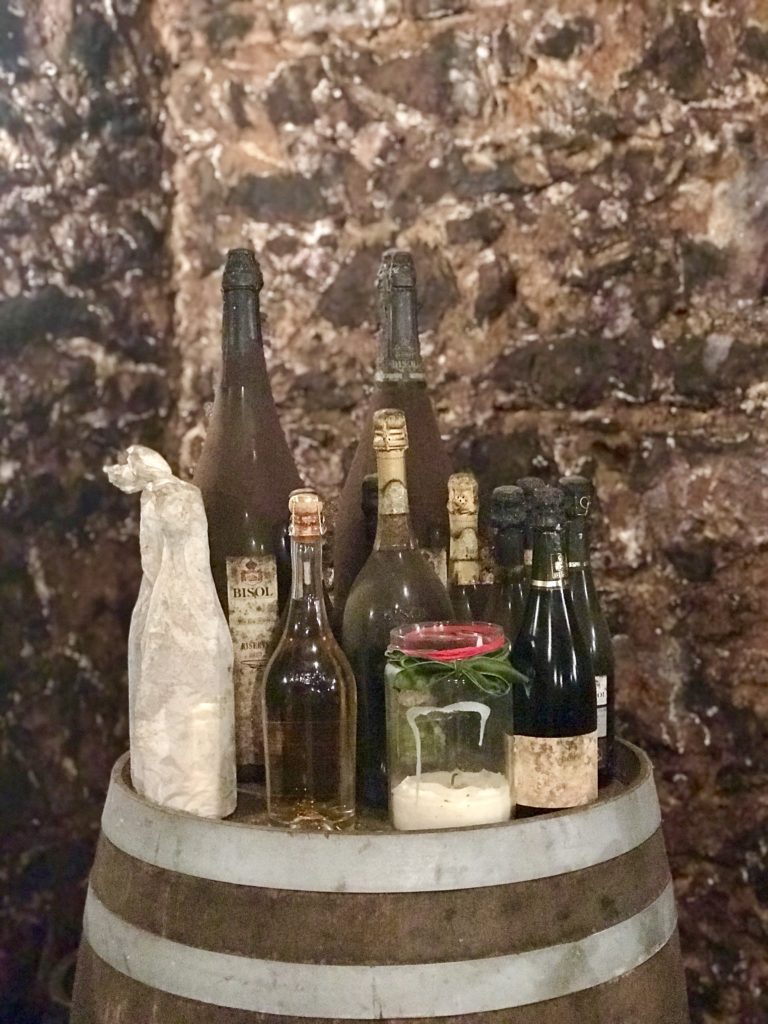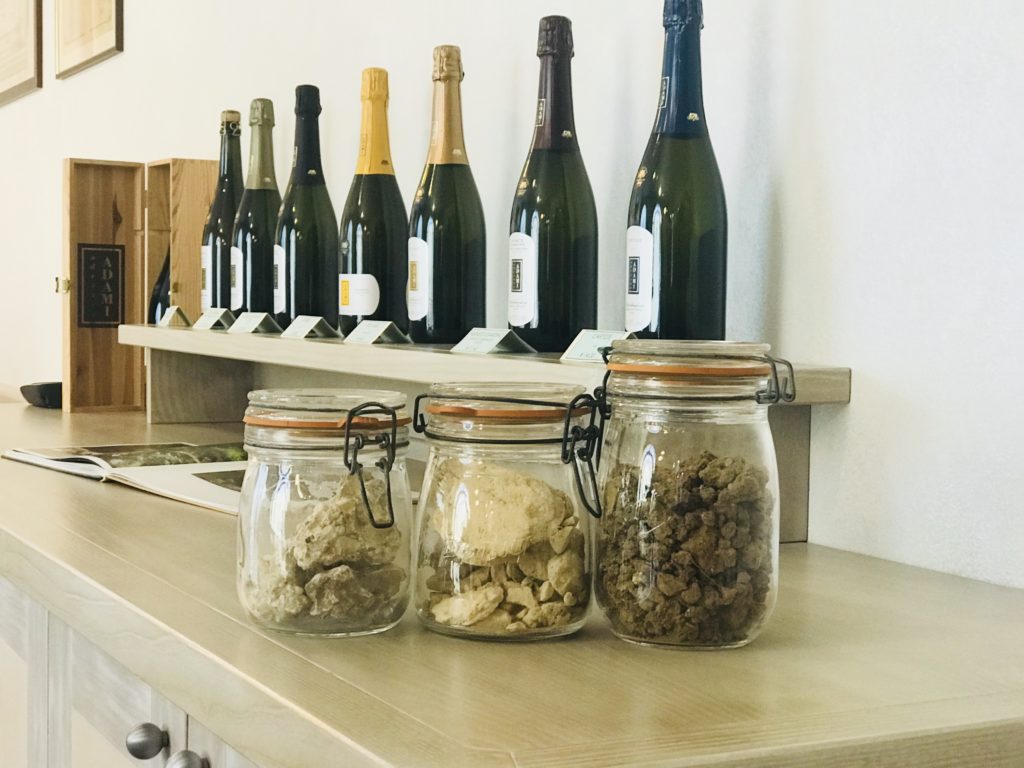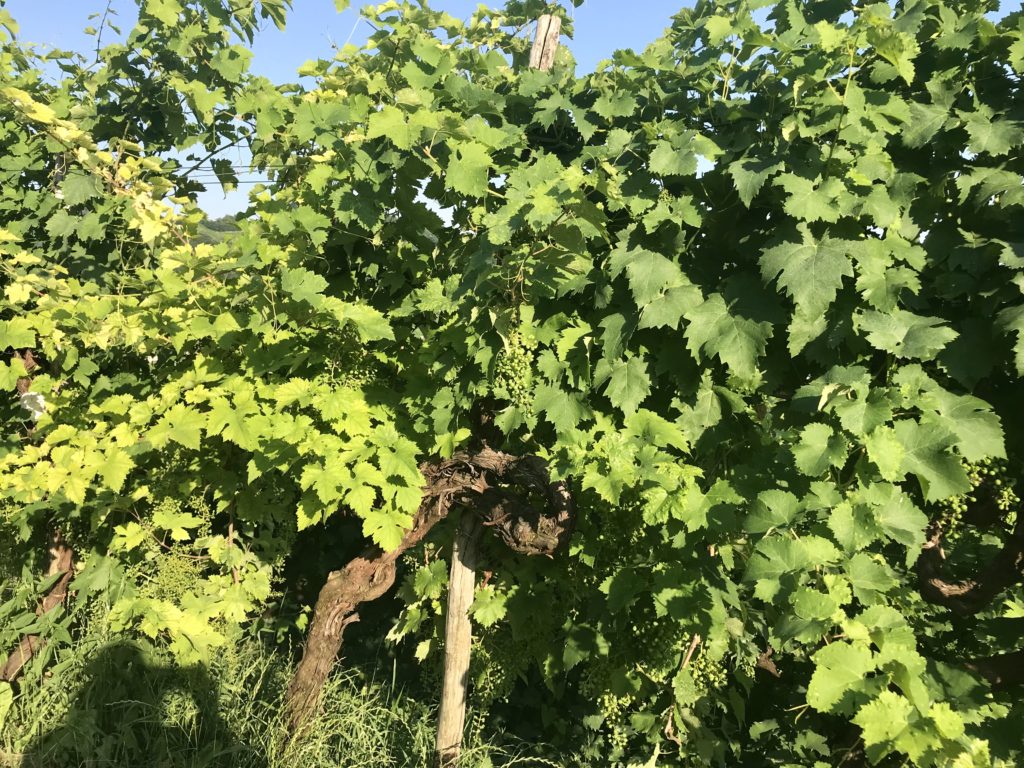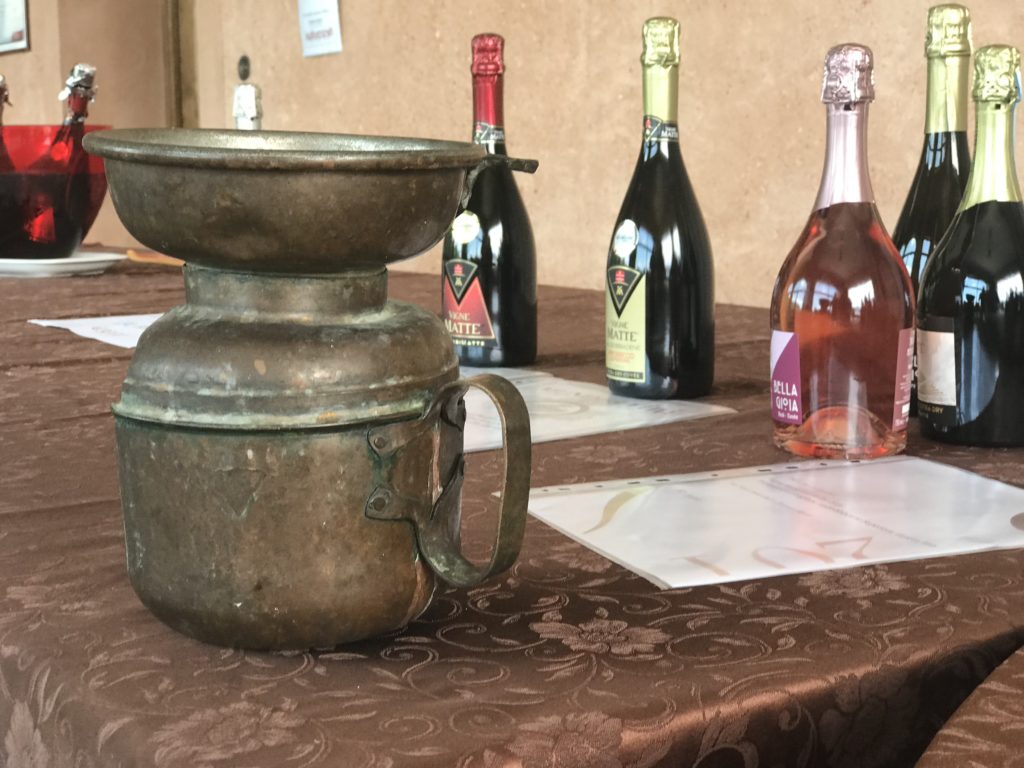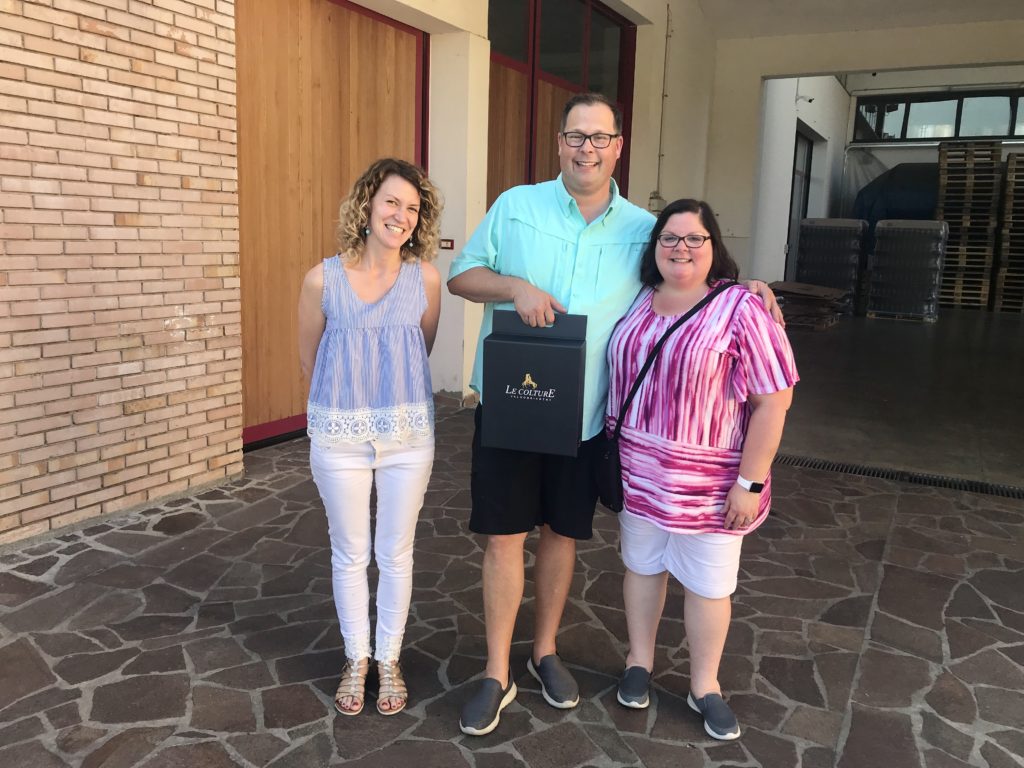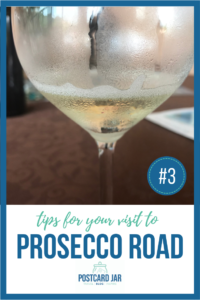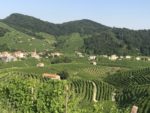A slow journey along the Prosecco Road allows you really get to know the wine you are drinking in a way not found in other parts of Italy. Because it doesn’t have the masses of tourists found elsewhere in the country, visitors to the Prosecco region can really immerse themselves and bask in warm Italian hospitality. There are no lines and no crowds, and no one seems to be in a hurry.
OK, now let’s talk about the wine.
What is DOCG?
The Prosecco region has a DOCG denomination. DOCG is short for the fancy Italian words, “Denominazione di Origine Controllata e Garantita.” It is part of a labeling and control system that Italy has created to help consumers know the regionally created products they are buying are genuine and of high quality. Because this system is key to understanding wine in Italy, our hosts Deb and Massi of Italy Unfiltered and Massi the Driver made sure to explain it to us right away.
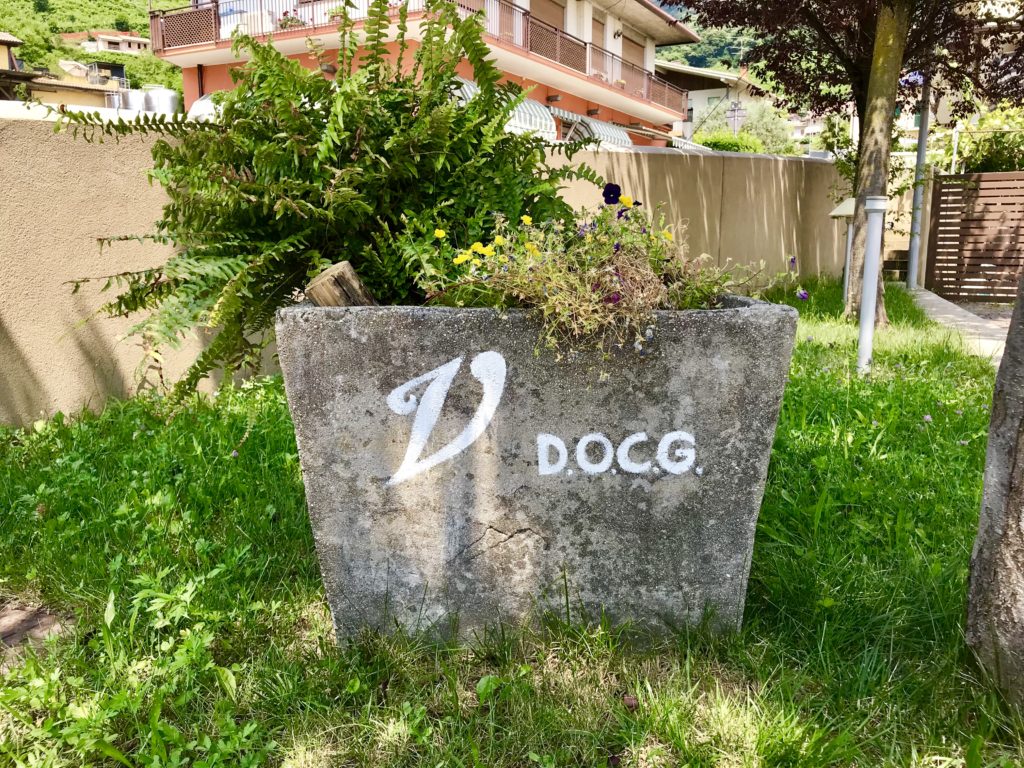
This marker shows that we are in a special agricultural area, “Denominacion de Origen Controlada e Garantita.” This means the grapes for the wine were grown in a specific region and that the wine is guaranteed to meet exacting specifications for quality.
DOCG wines are made from grapes grown only in the specific region known for the wine’s production.
Any bottle bearing a numbered DOCG seal was created following a well-defined set of rules for the blending of grape varietals, and has been tested not only for taste but also at the molecular level to exacting quality standards.
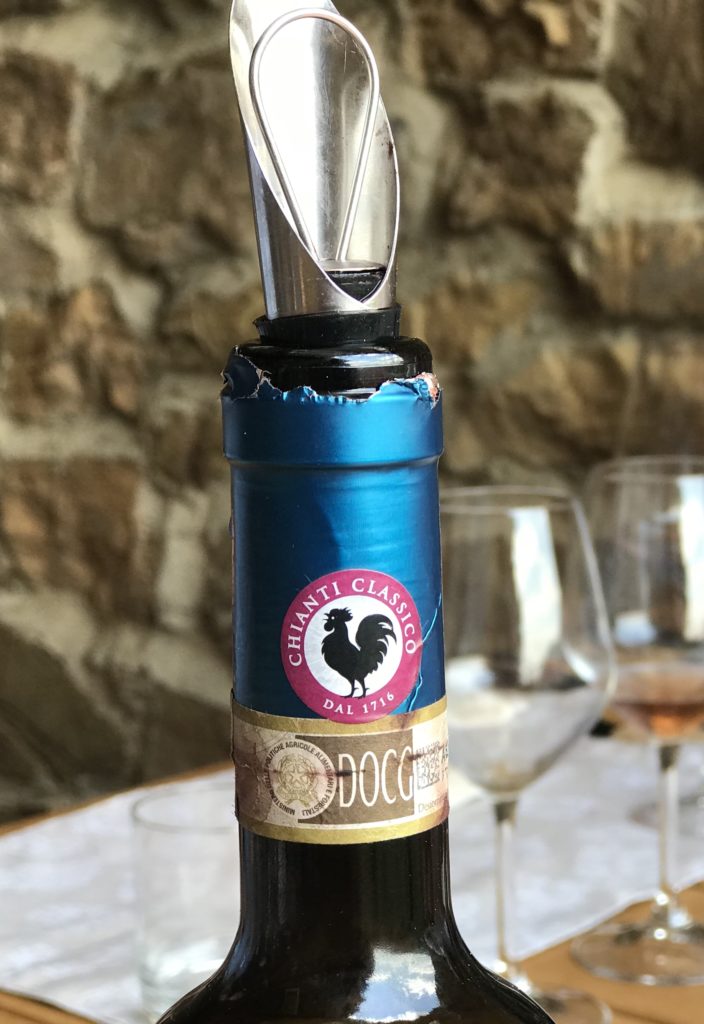
DOCG is not exclusive to Prosecco. Here is a DOCG label on a bottle of Chianti Classico. Because of the label, we know this bottle was crafted to exact standards.
If a wine doesn’t pass any of these tests, it doesn’t get approved for the little numbered paper seal. In other words, if you see a seal with the letters “DOCG” on an Italian wine, you know it was created and checked to meet exacting standards so is a good representative from the region. The Prosecco Road is full of wineries producing DOCG wines.
Visiting the Prosecco region
Along Prosecco Road, it is very easy to visit lots of wineries that produce DOCG wines, as they are extremely close together. I’m talking about sometimes just a few feet away from the next. Because each one offers visitors a unique experience, you really can really learn a great deal about the wine and region. At the Bisol winery, for instance, you can tour the museum in their original cellar and soak up the history of wine making both at that winery and in the region.
At another winery, you learn a little bit about the different soils in the region as well as what each soil type brings to the Glara grapes grown in it. You also hear how those grapes are blended to create the different wines offered.
Grapes galore
Grapes are everywhere throughout the region, often running right along the road like a hedge. Vines of Glara grapes decorated people’s front yards and were planted right next to buildings as if the grape growers didn’t want to waste one single square foot of this fertile land. Seriously, we could have stuck our hand out the car window and touched a vine if we’d wanted to.
Many of the wineries are small, family-owned operations without a formal tasting room staff. Instead, it is often the wine maker or close family member who pours and explains each wine to you. And what generous pours! In many cases you can get a little tour of the winery, as well. Imagine how much you can learn with so many mini-tutorials during your visit.
And with so few tourists around, even in the high Italian tourist season, we often had the wineries to ourselves. It was such a wonderful, relaxing way to enjoy sampling some of the world’s best wine.
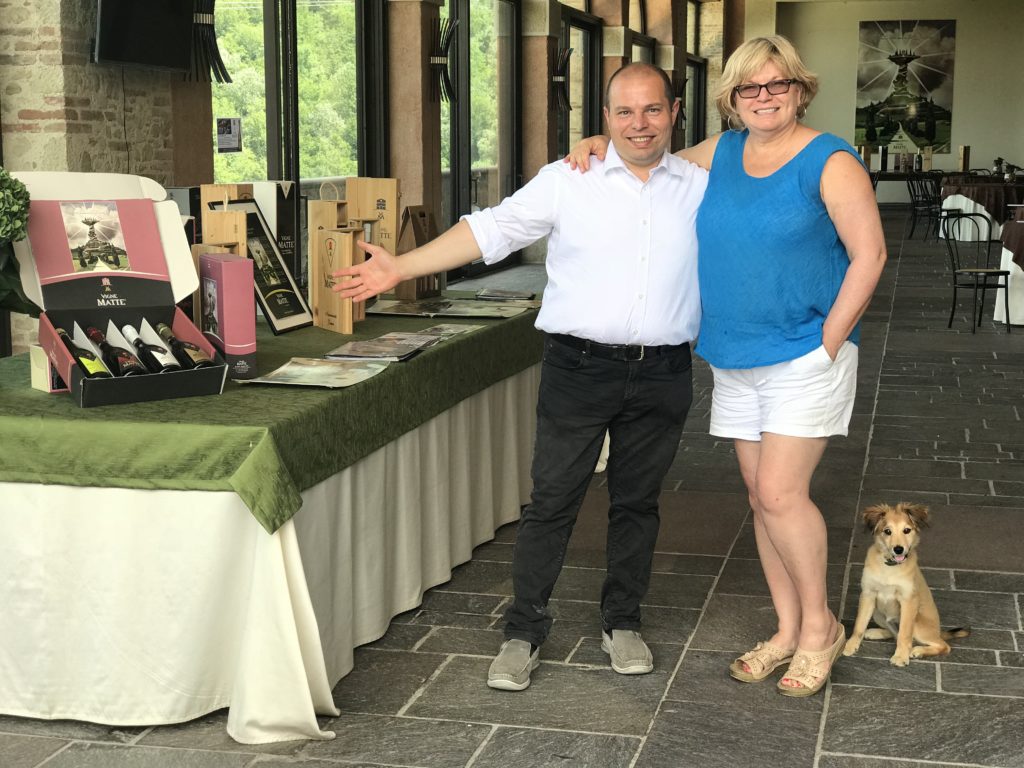
Our hosts, Massi and Deb, at the Vinge Matte winery. We were the only ones there except for the neighbor’s cute puppy who just loved following us around.
Other tips for your visit to Prosecco Road:
#1 Hire a driver and local guide
Our tour of the Prosecco Road and transportation were complimentary from Italy Unfiltered and Massi the Driver. The opinions expressed are our own.
PIN FOR LATER

